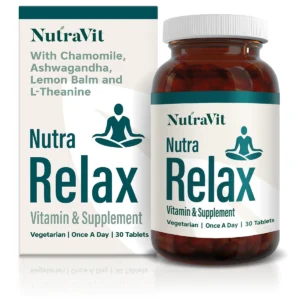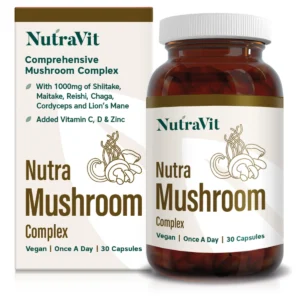Autumn is a time of change where temperatures are swapped for colder ones, iced lattes are switched for pumpkin-spiced lattes and back-to-work and school routines are embraced. While Autumn can be a rejuvenating season, the change associated with it can bring mental health challenges.
Only a couple of years back, in 2022, 1 in 6 adults experienced moderate to severe depression in Autumn. With the cost of living higher than ever, shorter daylight hours and entirely different routines from the relaxed ones in summer, this season can be harsh on the mind.
However, regardless of the mental health challenges linked with Autumn, you have the control and capacity to manage them effectively to enjoy this new season to the fullest. Dive in with us and learn 8 effective ways to manage your mental health this Autumn.
Why do people face mental health challenges in Autumn?
While we just quickly highlighted above, let’s jump right into why you might be prone to feeling slightly more down or struggling with mental health this season. The truth is, there’s not one fixed reason why you may face difficulties in Autumn. Sometimes, it could be the anxiety of beginning a new year, returning to the office with a backlog of work from holidays, or a lack of regret for specific goals chased in the summer.
Generally, most people face Autumn anxiety annually, but they’re not aware of it. Typically common symptoms are:
- Low mood
- Lethargy
- Irritability
- Worrying
- Depression
- Lack of interest
Moreover, the reduced daylight hours and sunlight can decrease your serotonin levels. This hormone is synonymous with mood, appetite and sleep patterns, which could be an underlying reason why you may feel anxious or struggle with your mental health.
8 practical tips to manage autumn mental health challenges
Controlling and managing your autumn mental health effectively is possible but requires work and consistency. Note that not every technique helps everyone; it’s a case of trial and error to find what helps you. Here are eight tops tips on how to manage your Autumn anxiety symptoms:
-
Exercise every day
With the cooler weather ahead, exercise can be a more friendly and inviting option. Whenever possible, try to exercise for at least 30 minutes a day. Whether it’s a lunchtime walk, joining your local gym, running, cycling, or anything else, it can help you feel more energised and be a great mood booster, which can make you feel more empowered to throw yourself into Autumn with full force.
2. Take care of your diet
Did you know scientists estimate your gut produces around 90% of your body’s serotonin? The mind and gut connection is strong, which means what you eat has a powerful impact on your mood. Consider the food you consume to help manage mental health challenges this Autumn.
Opt for warming healthy foods like soups you didn’t get in the summer. Besides, having a nutritious and colourful plate balanced with fruits, vegetables, and whole grains can help contribute to mood and energy. Avoid sugary snacks and beverages. They can give you temporary satisfaction and can become addictive. However, as soon as they leave your body, you’re likely to feel more exhausted and jittery, which can impact your mental health.
3. Have a positive outlook
Don’t link Autumn to negative experiences; instead, try to look for positive associations. It can be habitual to look at the downsides and focus on the loss of what you experienced in the summer but try not to. Instead of thinking about less sunlight and colder temperatures, reframe it and think about the exciting moments Autumn brings. Think about warm clothes, Halloween, bonfire night and more. Looking at the positives can invite a happier outlook towards life!
4. Self care
Among all the changes, take time out to practice some self-care activities that you love doing. Whether it’s undergoing a skincare routine, reading, enjoying quiet moments, seeing friends, or just practising mindfulness, self-care can help you manage.
5. Focus on your sleep
With around 7.5 million of us Brits having under 5 hours of sleep a night on average, Autumn can pose an even more tricky challenge to sleep routines. In Autumn, sleeping hours tend to fluctuate due to the shorter days. The decreased light exposure can make you feel more sluggish and affect your sleep quality.
Which in turn can make it harder for you to focus and learn and also induce anxiety symptoms and depression. Because of this, you should focus on getting a better quality of sleep. Try doing the following:
- Limiting your caffeine intake
- Try to go to bed at the same time
- Avoid screen time for one hour before bed
- Exercise
6. Get out into the nature
Nature can induce a calming effect on your mind and body. During COVID-19, a study was conducted showing that nature can have a soothing effect on your mind, lowering your risk of depression, stress, anxiety, and more. So, if you have a park, forest, beach, or lake near you, take some time out on an evening or weekend to spend time in nature. Being connected to natural surroundings is a primitive behaviour that can help you feel good.
7. Limit your mobile usage
To provide moments of mental clarity in the busy rush, reduce your mobile usage as much as possible. Try to take moments out of your day to have no phone times; it could be from 9:00 pm-9:00 am or any time you choose. Reducing your mobile usage gives you moments to reconnect with yourself and family members and be engaged in the present.
8. Socialise with your loved ones
Try not to isolate yourself and get too caught up in the changes to your routine this Autumn. Although the temperature is changing and days are getting shorter, this season still provides ample moments to reconnect, socialise, and gather with friends and family. Try to arrange dinner parties, hikes on weekends, coffee catch-ups, and more. Being around your loved ones can provide emotional support and uplift your overall well-being.
Vitamins and minerals to help manage mental health
In addition to these eight top tips to help you manage mental health challenges more effectively, your diet plays an essential role. While we highlighted the importance of diet and mental health earlier, some vitamins and minerals may help support your well-being even further in autumn.
Nutra Neuro
Nutra Neuro is a cutting-edge vitamin supplement that helps support your brain health, cognitive function and mental clarity. It contains ingredients like calcium, magnesium, Ginkgo Biloba extract, L-Tryptophan and Rhodiola Rosea extract, which synergistically work together to help your brain health.
It is great to take in autumn. In particular, L-Tryptophan in Nutra Neuro helps encourage the production of serotonin and promotes a positive mood. Ginkgo Biloba extract can provide additional support to enhance your concentration and memory during a busy autumn routine.
Nutra Relax
If you’re seeking additional support with changes to your routine and sleep this season try Nutra Relax. This supplement contains a powerful blend of ingredients contributing to mental and physical relaxation.
Some of its ingredients are lemon balm, chamomile and lavender which help promote a calming mind and healthy sleep patterns. Another key ingredient in Nutra Relax is Vitamin B6 which positively contributes to your psychological function and helps you have a relaxed mind.
Nutra Mushroom Complex
Nutra Mushroom Complex may also be another supplement worth adding to your routine. Inside Nutra Mushroom are Shitake, Maitake, Chaga, Reishi, Cordyceps and Lion’s Mane, which all have health-boosting properties. Lion’s Mane in Nutra Mushroom Complex helps support your cognitive function, mental clarity and focus.Reishi helps reduce stress, supports sleep and helps with anti-ageing. Alongside Maitake, which helps boost your immune system in autumn, allowing your other systems to stay optimised.
Nutra D3
Nutra D3 is a great vitamin that can support your mental health this Autumn. The vitamin inside this is vitamin D, which helps support your vitamin D levels when you don’t get enough sun exposure. Normal vitamin D levels can help you feel supported, preventing low mood and depression. Nutra D3 also supports your immune system’s normal functioning, energising you by protecting your body from harmful germs and bacteria.
NutraB50
NutraB50 is a super high-strength vitamin B complex that also contains biotin, which helps support energy and reduce feelings of stress and fatigue. It also contains Vitamins B6 and B12, which balance psychological health and overall brain support. NutraB50 has been meticulously formulated to help reduce tiredness and support your immune system, making it a great addition to include in your daily routine.
Final thoughts
Overall, autumn mental health can suddenly creep up on you without you noticing. With shorter days, back-to-work and school routines, the end of summer, and a new season, autumn can suddenly become overwhelming.
To cope with your mental health this season, try focusing on sleep, exercising, getting out into nature, having a healthy diet, decreasing screen time, and socialising with the people around you.
Also try to add more minerals and supplements to your diet. If you care about having good overall health this autumn check out our article- 5 most important minerals for optimal health.
 FREE UK DELIVERY ON ORDERS OVER £20.
FREE UK DELIVERY ON ORDERS OVER £20. WORLDWIDE SHIPPING AVAILABLE
WORLDWIDE SHIPPING AVAILABLE





